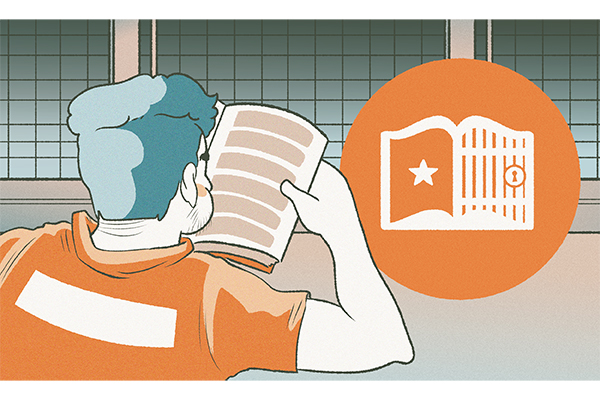When Maggie Luna began her sentence at Lucile Plane State Jail, she hoped to pursue a college education. However, Luna found accessing higher education opportunities in a women’s prison few and far between.
“It was just very depressing,” said Luna, a peer policy fellow for the Texas Criminal Justice Coalition. “We want to do something with our time, and just sitting there is not productive. All you have to think about is: What are you going to do when you get out? How can I get out and have nothing — no job and no skills?”
Luna said prisons deny access to higher education based on various factors, including age and length of sentence.
Now, with COVID-19 restricting teachers’ access to many jails in Texas, higher education resources are all but gone, she said.
The Texas Prison Education Initiative (TPEI) started in 2017 because of the scarcity of higher education, said Sarah Brayne, director of the initiative. She said people in prison can’t access education because of limited offerings, cost and prerequisites needed to take the courses.
“The demand is massive. People in prison want to take classes, they want to have access to an education,” Brayne said. “That desire and that hunger is really there, it’s just that it wasn’t being offered.”
TPEI offers free UT extension courses to women in the Lockhart Women’s Correctional Facility, but stopped classes when COVID-19 necessitated jails to lock down in March, Brayne said. Incarcerated students have no access to wifi or laptops, Brayne said, making the conversion to a virtual learning environment impossible.
Classes are unlikely to resume for the spring semester, Brayne said.
TPEI instructor Lilla Pivnick said she and her students were heartbroken when their class abruptly ended after spring break. Students were taught once a week for two hours, and spoke with friends they usually could not see in the facility, sociology graduate student Pivnick said.
“They often would express that this is one of their favorite times of the week,” Pivnick said. “They can come to class, have candid discussions, consume new materials, like (reading) new things … It was just really a moment where our students experienced a little bit of humanity in an otherwise inhumane place.”
TPEI is looking into grants to fund technologies for distance learning and to expand current course selections, Brayne said. For now, former TPEI students have no access to higher education resources because of the pandemic.
“No class is taken for granted,” said Faith Deckard, a UT graduate student and TPEI instructor. “I think it's because for them this is a second chance. This is someone seeing them, this is a chance for them to be humans, not inmates being talked down to but to be treated as somebody who's capable of thinking, who has an opinion, or perception that matters.”
Luna was released in 2018 with a National Course Construction Recognition and applied to over 122 jobs before she was accepted as a fellow, but said she was denied because she lacked better education and experience.
She said she sees change coming to higher education in the prison system, but worries about the psychological impacts of cutting inmates off from higher education during the pandemic.
“You just lose hope,” Luna said. “If you go in there and sit there and you just do your time, there is no rehabilitation. Plus the trauma that you experience just from being in prison is a whole new monster you have to deal with when you get out. But I think it’s promising because people are now becoming aware.”





















